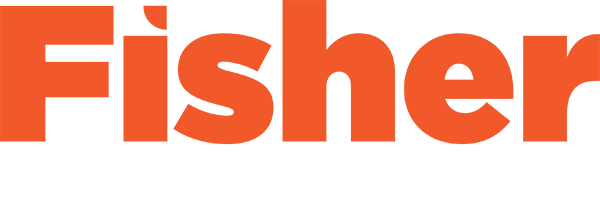PPC Advertising or Social Media Advertising: Which One Should I Do?

In today’s digital marketing landscape, online visibility and discoverability are extremely important to ensure continued growth and success for a wide range of businesses and organisations. In the ever-evolving online space, there are now a plethora of choices available when it comes to advertising online. Two of the most popular methods are Pay-Per-Click advertising and Social Media advertising. Both can be powerful tools for businesses of all sizes, but which one is the right choice for you? Let’s have a look into the pros and cons of each to help you decide.
What is PPC Advertising?
PPC, or Pay-Per-Click advertising, is a model where advertisers pay a fee each time their ad is clicked. With a variety of formats and channels such as search (such as Google), display (such as banner ads) and video advertising (such as Youtube ads), this method of digital advertising is prolific. PPC advertising has been a staple in most media planning calendars for businesses of all sizes.
In most marketing circles, PPC is still commonly associated with search engines like Google Ads and Bing Ads. Advertisers bid for ad placement in a search engine’s sponsored links, targeting keywords that are relevant to their business.
What are the Pros of PPC Advertising?
- Immediate Results – In the case of the most popular form of PPC – paid search ads – once your ad is live, it appears on search engines instantly. You can start seeing results right away.
- Targeted Traffic – PPC allows you to target specific keywords, display placements or video channels. Set up correctly, this helps ensure that you’re reaching an audience that’s either actively searching or currently engaging in partner platforms related to what you offer.
- Tight Budget Control – You have full control over your budget, deciding how much to bid for each keyword and setting limits. Most platforms allow for either daily budgets or lifetime/monthly budgets, and some even allow for rules to automate changes to the budget.
What are the Cons of PPC Advertising?
Although widely popular, PPC advertising does have it’s own particular set of challenges and disadvantages, such as:
- Cost – If not managed well, PPC can become expensive, especially in competitive niches. In some cases such as banking, retail shopping and insurance, the average cost per click is prohibitively high. Big advertisers can squeeze out the smaller ones based on the required budget size alone.
- Complexity – While most platforms continue to improve user experience and try to make the process as easy as possible, there’s still a learning curve involved, especially when optimising campaigns for maximum return on investment (or ROI). The more sophisticated the targeting, the most complex setup and maintenance can become.
- Short-term Results – Once you stop investing in PPC, the traffic stops. This is in stark contrast to PPC’s de-facto sister, organic search marketing (commonly referred to as SEO), where the initial investment continues to generate organic traffic even if the business turns off the tap on their SEO budget.
Is There Another Option Other Than PPC? Enter Social Media Advertising
While Pay-Per-Click (PPC) advertising, especially through search engines, has been a go-to strategy for many, it’s not the only player in the game. If you’re looking for a dynamic alternative to PPC, you might want to consider Social Media Advertising.
But first, what is Social Media Advertising?
Social Media advertising involves creating and running campaigns on social media platforms. These platforms include sites such as Facebook, Instagram, LinkedIn, Twitter and Pinterest. Here, you can target audiences based on demographics, interests, behaviours and more.
What Sets Social Media Advertising Apart?
- Audience Engagement – Unlike the mostly transactional, one-sided nature of PPC, advertising through social media platforms allow for a two-way conversation. This interaction can help foster deeper connections between brands and their audience, potentially leading to stronger brand loyalty.
- Vast and Varied Audience – Platforms like Facebook, Instagram, LinkedIn and Twitter cater to billions of users worldwide. With such a vast reach, you can find almost any demographic or interest groups on these platforms.
- Dynamic Creatives and Content – The visual and interactive nature of social media platforms provide a space for creative, engaging ads. Whether it’s a short video, an interactive poll or eye-catching images, the content possibilities are nearly endless.
- Behavioral and Interest-Based Targeting – Beyond just demographics, social media platforms provide insights into users’ behavior, interests and more. This means you can target someone not just based on their age or location, but for their hobbies and interests, the pages they’ve liked, or even their recent online activities. Some platforms even allow you to re-engage users who have interacted with your content or your website in the past.
- Organic + Paid Synergy – An advantage of advertising on social platforms is the potential harmony between organic content (your regular posts) and paid social advertisements. This can enhance your brand’s narrative and foster a cohesive user experience.
PPC or Social Media Advertising? Which One Should You Choose?
Before you go all in with either option, here are some things to consider:
Consider Your Goals
If you’re looking for immediate, short-term sales from an audience who’s actively searching, PPC advertising might be the way to go. If brand awareness and engagement are your main goals, social media advertising may be a better choice. In some cases, you may find that PPC and social media advertising complement each other, particularly if you have multiple goals for the business.
Think About Your Audience
Planning on which one to spend your budget on is also highly dependent on where the majority target audience spend time on. If your audience spends a lot of time on social platforms, tapping into that space might be more fruitful. This is especially true for the younger generation who are more engaged online rather than the traditional avenues of marketing.
For B2B companies or niche industries, PPC advertising (specifically paid search advertising) can prove to be more effective. Certain professional services such as banking, insurance, trades, etc. are also more likely to benefit from PPC advertising based on how users discover their services.
Evaluate Your Budget
While both methods can be cost-effective, the way you’ll spend your budget will differ. PPC, especially in competitive industries, can have a higher cost-per-click. Social media advertising, while often more affordable, may require more investment in content creation.
Expertise and Effort:
If you’re new to digital advertising, you might find the simplicity of setting up a social media ad more appealing. On the other hand, if you have a team or are familiar with keyword research, display placements and the like, PPC can be highly effective.
Both PPC and social media advertising have become more sophisticated over the years. Expanded feature sets, legislation requirements and added fragmentation in the social media space as a result of competing platforms mean that ongoing training and practice is required to use digital ads to their full potential.
Conclusion
The choice between PPC and Social Media Advertising isn’t always black and white. It might make sense to allocate resources to both, depending on the diversity of your business goals.
In some cases, it might be worth engaging with a trusted and experienced digital marketing agency who can help come up with strategies on how to effectively reach your target audience. They often provide a lot of business insights, help evaluate your target audience, your content strengths and your budget, and also test channels to determine which brings the best ROI for your specific needs. In the dynamic world of digital advertising, being adaptable and data-driven is key to success, whether you work on your marketing efforts in-house or with an agency.
More Blogs & Latest News like this
Web Technologies
Safeguarding Your Digital Frontier: The Vital Importance of Website Maintenance and Security
In today's digital era, where online presence has become synonymous with credibility and success, the role of a wel...
Social Media
All About Threads
All About Threads Meta has recently launched a new app named Threads. Along with the rest of the world, we're st...
Social Media
2023 Social Media Video Trends: How Brands in Perth Can Benefit
The start of a new year is a great time to take a closer look at the upcoming video trends in the world of social media. This...
Latest Insights

















